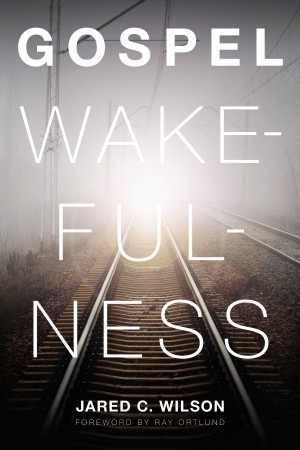Justin Taylor's Blog, page 273
October 21, 2011
The Best Introduction to Homosexuality: Causes, Change, and the Gospel
The lecture below by Professor Sam Williams (Southeastern Baptist Theological Seminary) is not an exploration of or defense of interpreting the Bible with regard to homosexuality. The best material on that is Robert Gagnon's The Bible and Homosexual Practice: Texts and Hermeneutics (see this video for a good introduction). Williams assumes the biblical perspective in this lecture.
Having followed this issue for some time, I would say that this is the best one-hour introduction you can find—or at least that I have found—for looking at issues like:
What causes homosexuality?
Can we be responsible for that which is not consciously chosen?
What is the difference between having same-same attraction, same-sex orientation, and being "gay" or "lesbian"?
How many people self-identify in these ways?
Do people with same-same attraction actually change?
How can they change?
What does the gospel have to do with this issue?
How can we promote change in the church for those who struggle?
You can listen to the audio at iTunes, though the video below is worth watching, if you can, to see a couple of the charts. It really is worth watching or listening to if you are interested in this issue and long to help people change.
For more on some of the social-science research see Mark Yarhouse's summary paper, "At the Intersection of Religious and Sexual Identities: A Christian Perspective on Homosexuality."
October 20, 2011
Discussion on Polity and Multi-Site
Jedidiah Coppenger leads a Baptist21 panel at Southeastern Seminary with Danny Akin, Thabiti Anyabwile, Mark Dever, James MacDonald, Darrin Patrick, and Ben Mandrell (September 2011):
HT: Thabiti
J. I. Packer: "Theology Is for Everyone"
J. I. Packer speaking on why "Theology Is for Everyone" (MP3) at St. Peter's Anglican Church (Tallahassee, Florida) on February 1, 2010:
October 19, 2011
Free MP3: Lord, I Believe (Communion Hymn)
[image error]
I'm not aware of many hymns that are specifically designed for celebrating the Lord's Supper.
An exception is a hymn written by Joseph Hart, an 18th-century Calvinist minister and hymn writer in London who was buried at Bunhill Fields near Bunyan, Watts, and Owen. (Hart is best known for his hymn "Come Ye Sinners, Poor and Needy.")
Zac Hicks + Cherry Creek Worship has taken that old and largely forgotten hymn and given it new life on their album Without Our Aid.
You can listen to it here:
And courtesy of Zac, you can also download the MP3 for free.
Worship leaders and musicians can check out the chord chart and the lead sheet.
Here are the lyrics:
Pity a helpless sinner, Lord,
Who would believe Thy gracious Word.
But, O! my heart with shame and grief,
A sink of sin and unbelief.
Lord, in Thy house, I read there's room,
And venturing hard, behold, I come.
But can there, tell me, can there be
Amongst Thy children room for me?
I eat the bread and drink the wine,
But, O, my soul wants more than sign!
I faint unless I feed on Thee,
And drink the blood as shed for me.
Lord, I believe Thy grace is free.
O, magnify that grace in me.
For sinners, Lord, Thou cam'st to bleed,
And I'm a sinner vile, indeed.
Lord, I believe Thy grace is free.
O magnify that grace in me.
Words: Joseph Hart, ca. 1757-1759
Music: Zac Hicks, 2010
©2011 Unbudding Fig Music (ASCAP)
How to Think about Curses in the Psalms
From Jack Collins's "Introduction to the Psalms" in the ESV Study Bible:
 Many psalms call on God for help as the faithful are threatened with harm from enemies (often called "the wicked"—frequently the unfaithful who persecute the godly, and sometimes Gentile oppressors). In a number of places, the requested help is that God would punish these enemies. Christians, with the teaching and example of Jesus (in passages like Matt. 5:38-48; Luke 23:34; 1 Pet. 2:19-23; cf. Acts 7:6), may wonder what to make of such curses:
Many psalms call on God for help as the faithful are threatened with harm from enemies (often called "the wicked"—frequently the unfaithful who persecute the godly, and sometimes Gentile oppressors). In a number of places, the requested help is that God would punish these enemies. Christians, with the teaching and example of Jesus (in passages like Matt. 5:38-48; Luke 23:34; 1 Pet. 2:19-23; cf. Acts 7:6), may wonder what to make of such curses:
How can it possibly be right for God's people to pray in this way?
Many have supposed that this is an area in which the ethics of the NT improve upon and supersede the OT.
Others suggest that these only apply to the church's warfare with its ultimate enemy, Satan, and his demons.
Neither of these is fully satisfying, both because the NT authors portray themselves as heirs of OT ethics (cf. Matt. 22:34-40) and because the NT has some curses of its own (e.g., 1 Cor. 16:22; Gal. 1:8-9; Rev. 6:9-10), even finding instruction in some of the Psalms' curses (e.g., Acts 1:20 and Rom. 11:9-10, using Psalms 69 and 109).
Each of the psalm passages must be taken on its own, and the notes address these questions (e.g., see notes on 5:10; 35:4-8; 58:6-9; 59:11-17; 69:22-28; 109:6-20; and the note on Psalm 137, which contains the most striking curse of all). At the same time, some general principles will help in understanding these passages.
First, one must be clear that the people being cursed are not enemies over trivial matters; they are people who hate the faithful precisely for their faith; they mock God and use ruthless and deceitful means to suppress the godly (cf. 5:4-6, 9-10; 10:15; 42:3; 94:2-7).
Second, it is worth remembering that these curses are in poetic form and can employ extravagant and vigorous expressions. (The exact fulfillment is left to God.)
Third, these curses are expressions of moral indignation, not of personal vengeance. For someone who knows God, it is unbearably wrong that those who persecute the faithful and turn people away from God should get away with it, and even seem to prosper. Zion is the city of God, the focus of his affection (cf. Psalms 48; 122); it is unthinkable that God could tolerate cruel men taking delight in destroying it. These psalms are prayers for God to vindicate himself, displaying his righteousness for all the world to see (cf. 10:17-18). Further, these are prayers that God will do what he said he will do: 35:5 looks back to 1:4, and even 137:9 has Isaiah 13:16 as its backdrop. Most of these prayers assume that the persecutors will not repent; however, in one place (Ps. 83:17), the prayer actually looks to the punishment as leading to their conversion.
Fourth, the OT ethical system forbids personal revenge (e.g., Lev. 19:17-18; Prov. 24:17; 25:21-22), a prohibition that the NT inherits (cf. Rom. 12:19-21).
Thus, when the NT writers employ these curses or formulate their own (as above), they are following the OT guidelines. Any prayer for the Lord to hasten his coming must mean disaster for the impenitent (2 Thess. 1:5-10). Yet Christians must keep as their deepest desire, even for those who mean harm to the church, that others would come to trust in Christ and love his people (cf. Luke 23:34; Rom. 9:1-3; 10:1; 1 Tim. 2:4; 2 Pet. 3:9). Hence, when they pray for God to protect his people against their persecutors, they should be explicit about asking God to lead such people to repentance.
With these things in mind, then, it is still possible that the faithful today might sing or read aloud even these sections of the Psalms, if it takes place in a service of worship, under wise leadership, for the good of the whole people of God.
Throwing the Book at His Enemies: King James I and His Bible
A lecture by Carl Trueman.
Gospel Wakefulness: 45% Off for One Week
 Jared Wilson's Gospel Wakefulness is on sale for 45% off for one week at Westminster Books, so it's only $8.47.
Jared Wilson's Gospel Wakefulness is on sale for 45% off for one week at Westminster Books, so it's only $8.47.
There you can read for free Ray Ortlund's foreword, the table of contents, the introduction, and the first chapter that answers the question, "What is gospel wakefulness?"
"Gospel Wakefulness was a joy to read. My eyes filled with tears and my heart flooded with joy on numerous occasions. It's been a long time since a book created the emotion in me that this book has. The chapters on brokenness and sanctification were humbling and beautiful reads. I am praying that Gospel Wakefulness falls into a lot of hands and hearts."
—Matt Chandler, Lead Pastor, The Village Church, Highland Village, Texas; author, The Explicit Gospel
"To paraphrase Solomon, of making many books (about the gospel) there is no end. And I'm glad of it! I pray we never reach the day when we grow weary of writing and reading books about the gospel. That is why I'm profoundly grateful for Jared Wilson's contribution to this growing genre of Christian literature. He awakens us to the power of the gospel—that alone brings hope in the midst of brokenness and joy—in the stunning truth that a holy God is actually for us. If you need to wake up to the beauty of the gospel (and who doesn't?), this book is for you. If you've ever wondered how the gospel quite literally and radically changes everything, both now and tomorrow, Gospel Wakefulness is must reading."
—Sam Storms, Pastor, Bridgeway Church, Oklahoma City, OK; Founder, Enjoying God Ministries
"Gospel Wakefulness is one of the most theologically faithful, refreshingly honest, pastorally sensitive, and eminently practical books on the gospel I have read in a long time. Accessible without tiresome clichés or self-serving anecdotes, Jared writes as a man astonished at the riches of God's grace, committed to the maturing of Christ's church, and engaged with the advancing of God's kingdom. The gospel is more clear and precious to me for having read Jared's book. I cannot think of a greater compliment to be able to offer."
—Scotty Smith, Pastor for Preaching, Teaching, and Worship, Christ Community Church, Franklin, Tennessee
Listening to and Questioning the Seeker Church
Kevin DeYoung provides a very insightful and balanced review of James White's new book on how to have a successful ministry, and seeks to think through the divide between the young Reformed world and the seek-sensitive movement and what each side can learn.
Saved by the Letter "M"
 1 Corinthians 1:26:
1 Corinthians 1:26:
Not many of you were wise according to worldly standards, not many were powerful, not many were of noble birth.
Selina Hastings, Countess of Huntingdon (1707-1791):
Blessed be God, it does not say "any mighty," "any noble"; it says "many mighty," "many noble."
I owe my salvation to the letter "m."
If it had been "not any noble," where would the countess have been?
The Gospel: In and Over Culture
D. A. Carson:
No truth which human beings may articulate can ever be articulated in a culture-transcending way, but that does not mean that the truth thus articulated does not transcend culture.
Lesslie Newbigin:
Neither at the beginning, nor at any subsequent time, is there or can there be a gospel that is not embodied in a culturally conditioned form of words. The idea that one can or could at any time separate out by some process of distillation a pure gospel unadulterated by any cultural accretions is an illusion. It is, in fact, an abandonment of the gospel, for the gospel is about the word made flesh. Every statement of the gospel in words is conditioned by the culture of which those words are a part, and every style of life that claims to embody the truth of the gospel is a culturally conditioned style of life. There can never be a culture-free gospel. Yet the gospel, which is from the beginning to the end embodied in culturally conditioned forms, calls into question all cultures, including the one in which it was originally embodied.
—Donald A. Carson, "Maintaining Scientific and Christian Truths in a Postmodern World," Science & Christian Belief 14/2 (October 2002): 107-122.
—Lesslie Newbigin, Foolishness to the Greeks: The Gospel and Western Culture (Grand Rapids, MI: Eerdmans), p. 4.
Justin Taylor's Blog
- Justin Taylor's profile
- 44 followers



